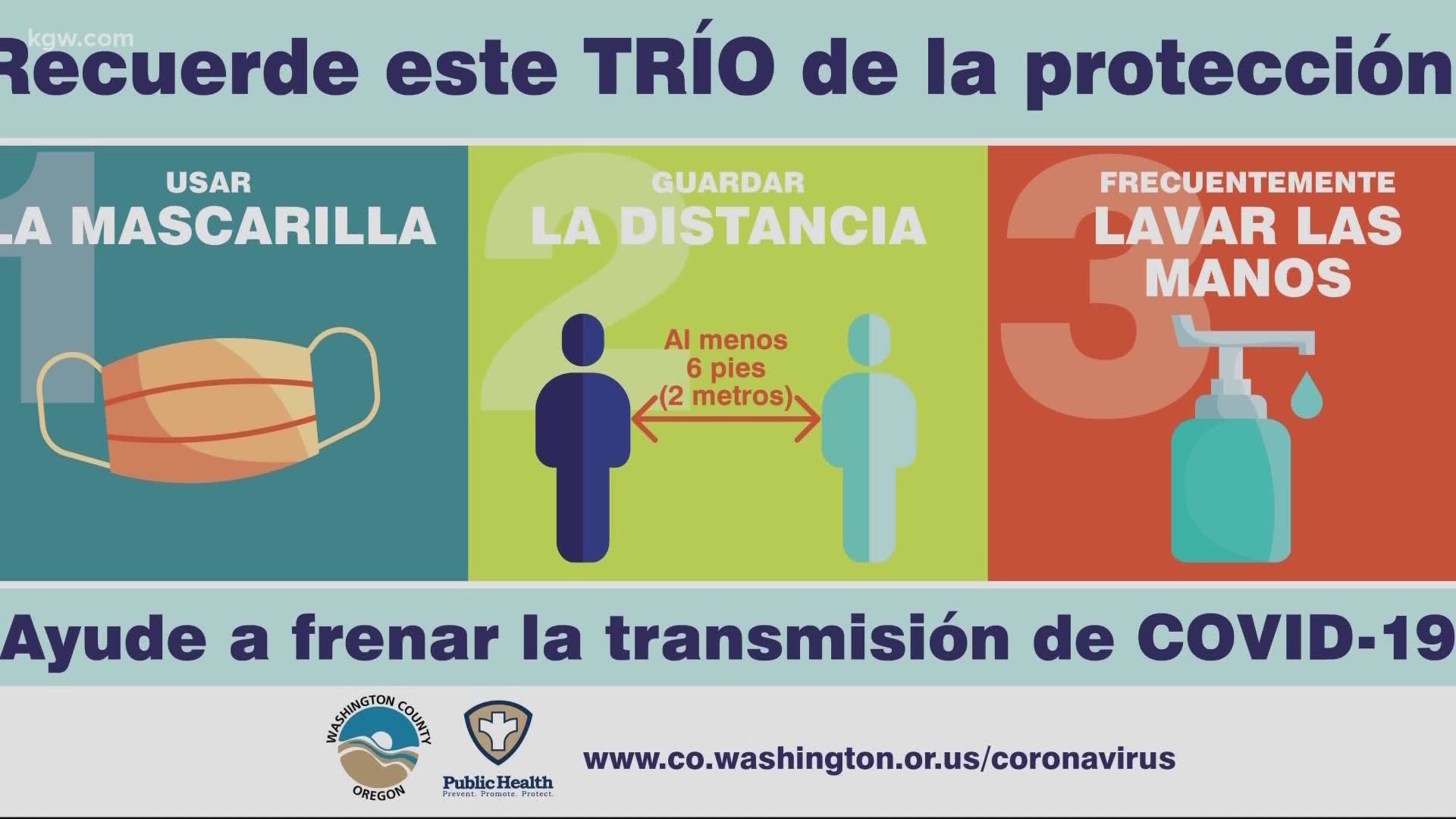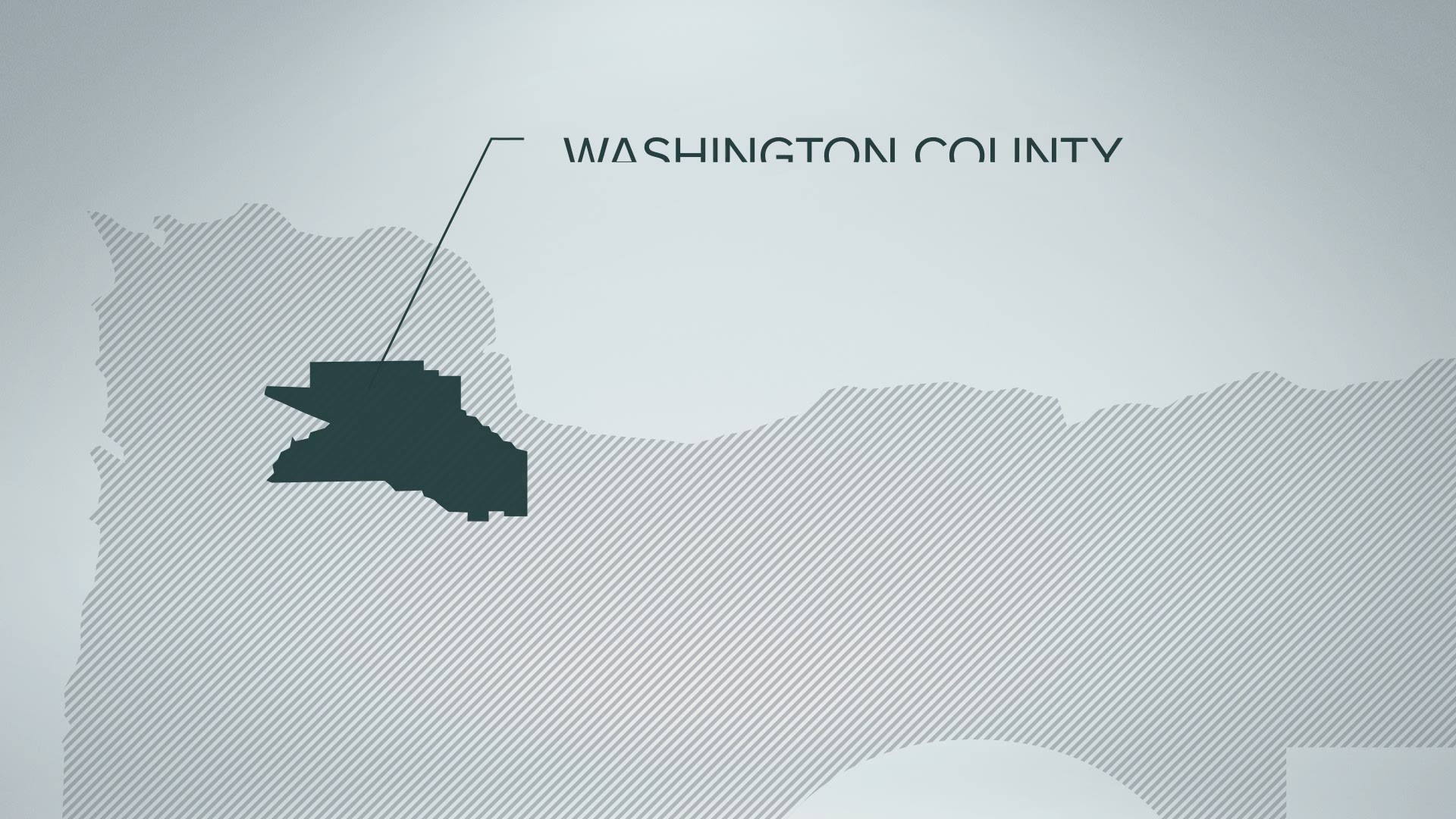PORTLAND, Ore — Can you imagine living somewhere else during this crisis and not knowing the language to understand all the rules and guidance? It's a reality many Oregonians deal with daily, and it is why Washington County is reaching out to people of color who don't speak English.
One of the county's emergency operations communications assistants, Eva Aguilar, sees her calling to support the Latinx community during the pandemic as a privilege. She emigrated to the United States from Mexico 15 years ago and now works for Washington County.
“As scary as the government is for many... we are humans working for them,” Aguilar said. "When we face the community we are just one among the rest.”
Aguilar and other bilingual county employees translate critical pandemic-related information into other languages, while keeping in mind cultural differences.
“And trying to be sensitive and understanding of the situation of our community,” Aguilar said. "I think we could have done more sooner. But we are doing as much as we can and trying to work at the speed the virus is moving.”
The county built a website for primarily Spanish speakers who make up about 10-13% of the county's population. But reaching out and communicating with those who lack access to technology proves challenging.
"We have identified a gap in communicating with people not connected technologically. So that’s an area we’re going to have to explore options to get to them," Aguilar said, "and this is really not surprising; we knew as a fact that our community prefers personal connections, interactions. We have to go where they are, meet people face-to-face and talk to them. COVID-19 has put a significant barrier in our communication strategy."
Knocking down that barrier has never been more crucial, as the pandemic highlights glaring health disparities.
About 15% of Washington County's population identifies as Latinx but more than half of its COVID-19 cases are in that community, largely because many work jobs that have been deemed essential and live with family members of various ages.
"It took a few weeks to realize that the impacts were showing more in this community. And then acknowledging and making the connection that this is not a COVID-19 situation, we cannot blame the virus for this. This is just making visible situations that existed and put this community in a low category in some areas," Aguilar added.
The county also built partnerships with community organizations to directly bring immigrants and other marginalized groups printed and translated materials. They are also working with organizations entrenched in different communities of color to bring food to migrant camps, create webinars for minority-owned businesses and provide COVID-19 testing and screening, among many other efforts.
Virginia Garcia Memorial Health Center is working with the county to make coronavirus tests easier to access.
"We want to eliminate as many barriers from access from transportation, language, cost affordability," Virginia Garcia Memorial Health Center CEO Gil Muñoz said. "That only helps to serve the community as a whole so that we can really contain the spread of the virus."
Virginia Garcia holds free pop-up drive-thru screening events, also working with local nonprofits, around the county geared toward communities of color with bilingual staff on site. The health care provider is focusing on different populations within Washington County throughout the summer.
"We also are focused on places where there is a lot of congregant living, multi-generational housing complexes, those areas where we’ve seen the spread of the virus increase," Muñoz said.
While this showcases Washington County's efforts to reach out and educate and help non-English speaking communities, Aguilar admits there is more proactive work yet to be done beyond the pandemic.
“We acknowledge we are missing very important pieces - even in the communication part of the system - so we are working hard to make sure this is not a one-time action,” he said.


